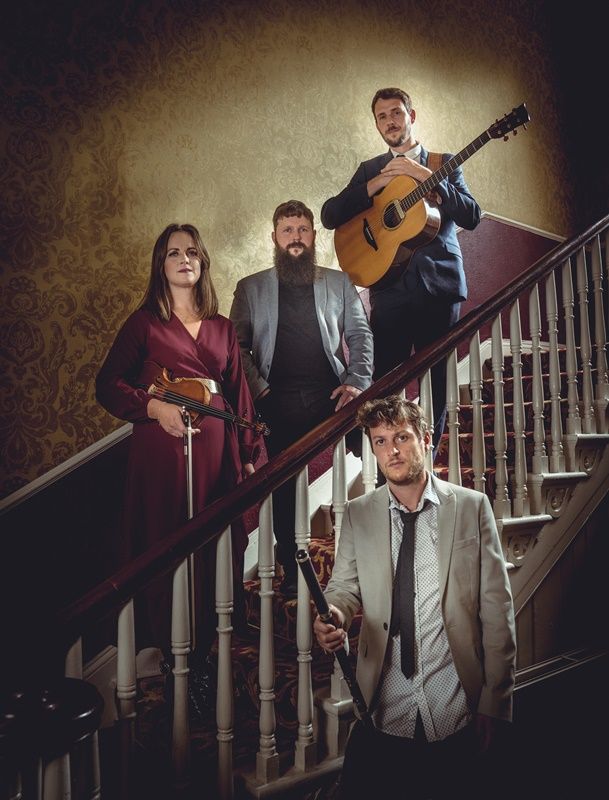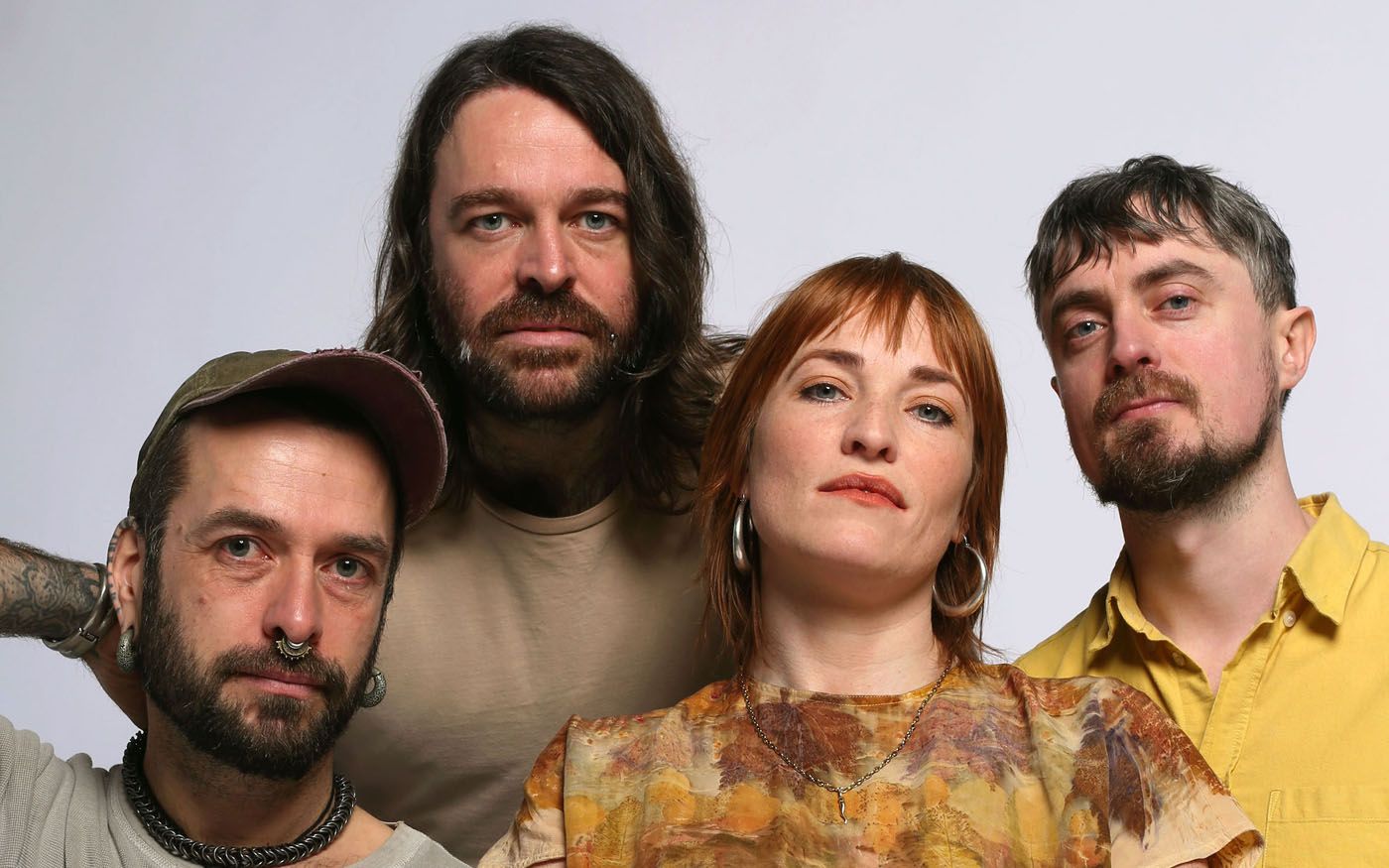As with other bands you find with the Jeremiahs that opposites cause productive friction. In their ten years of band history, it is difficult to decide what was the outcome of strategic planning and what just developed “organically”.
Text: Almut Kückelhaus
At the beginning there was a duo from Dublin. Joe Gibney decided early on to concentrate on his singing. He had known James Ryan since his childhood. Ryan did not only add his versatile guitar playing but also came up with the idea to name the band after his forebear Jeremiah. Meant to be a temporary solution the name just stuck.
Friends of friends joined on lead instruments. This also applied later when changes in personnel became necessary. On all three albums Jean-Christophe Morel can be heard on violin, a Frenchman who had been drawn to Ireland by the music. The same applied for his compatriot Julien Bruneteau who, having studied jazz flute, developed his distinctive crossover style. After Morel left Niamh Varian-Barry took over the position as a fiddler. She had studied classical music and gained experience as an orchestra player. The woman from Cork spent three years travelling with renowned band Solas, mainly in the USA. She also takes lead vocals and writes songs in which American influences show.
At the Celtic Connections festival in Glasgow the band made contacts for their first tour of Germany which took place in September 2022 (a review of one of those concerts can be found here). When Joe Gibney – trademark: hand cupped behind his left ear while singing – steps forward to the microphone, closing your eyes you might believe for a short moment you had Luke Kelly and the Dubliners in front of you. This little journey in time ends abruptly when the instruments get going, clearly leaving the last century behind, weaving multiple threads of melodies in a virtuoso manner. With his powerful voice, straightforward and full of emotion, Gibney interprets his own songs and the works of others such as Dave Sudbury’s “The King Of Rome” with the same intenseness (check out the video link below). James Ryan, quietly standing at the side, keeps the threads together with his guitar grooves while flute and fiddle whirl about pushing each other onwards. Fiery Julien Bruneteau improvises and varies at rapid speed while Niamh Varian-Barry easily keeps up in her own manner. With such an amount of energy on stage you don’t ask for bass or percussion and it doesn’t take long for the music to spark off and excite the audience. The Jeremiahs act in a pleasant, unpretentious way and rely on the power of their music to speak for itself.
Of course, the pandemic was a hard blow for such a marked live band. It hit when they were touring the USA. It was only just that they were able to catch a plane home. Recordings for their third album had already begun in 2019. The band evaded the very strict travel restrictions in Ireland by going to Bordeaux, home of their flute player. There they recorded seven tracks for Misery Hill And Other Stories, joined by a number of French guest musicians. The three remaining tracks were produced later by Lúnasa’s Trevor Hutchinson in Ireland. He had already played double bass on their previous albums. As with other “Covid albums” the mood is rather subdued. Sounds are quite varied though. On the one hand there are some classical string arrangements, on the other drums and bodhrán add extra drive. The band deemed it unnecessary to use computer generated sounds. Compared to its two predecessors the new album is a big step further forward because of its concept and thoughtful production.
The “… and other Stories” in the title is no coincidence. But isn’t it uncool today to tell stories from the past? To Joe Gibney it is something that comes naturally. He has grown to be a songwriter whose writing bears his own signature. From his song melodies which seem immediately familiar as well as from his catchy choruses you can gather that he grew up with loads of traditional songs. Added to this is a very close relationship to historical events as it is often to be found in Ireland. Gibney’s method: turn things that happened in the past, either in history or in your own, into powerful images which have a universal meaning. And he shows a lot of empathy in doing this. Allegoric characters like death (“The Reluctant Farmer”) or the devil (“The Devil’s Pure Drop”) express fears and weaknesses in a timeless way.
The title song reminds one of the gruesome past of this Dublin quarter (Misery Hill) as a place of the damned and of executions. The devastating storm which hit the country in 1839 could only have been caused by a big fight of the fairies, if you look at it the Irish way. The eye witness report by way of spoken word generates an eerie atmosphere. The musical expression of the battle as well as the three instrumental tracks show creative and effective arrangements while the story concept still leaves space for songs from a personal perspective. And it is worth noting that even the topic of suicide is dealt with (“Water’s Edge”). No wonder the liner notes mention authorship of the band’s instrumentalists as well because their melodies have a large share in the overall impression and are more than just accompaniments.
The Jeremiahs
Foto: Promo
Current album:
Misery Hill And Other Stories(Self-published, 2023)
Videos:
„Misery Hill“: www.youtube.com/watch?v=NWsrc4aE8Zc
„The King Of Rome“, live at Celtic Connections 2022: www.youtube.com/watch?v=Ka-hvegLpWI
„The Reluctant Farmer“, live at Celtic Connections 2022: www.youtube.com/watch?v=aO1oIPiRxtw











0 Kommentare